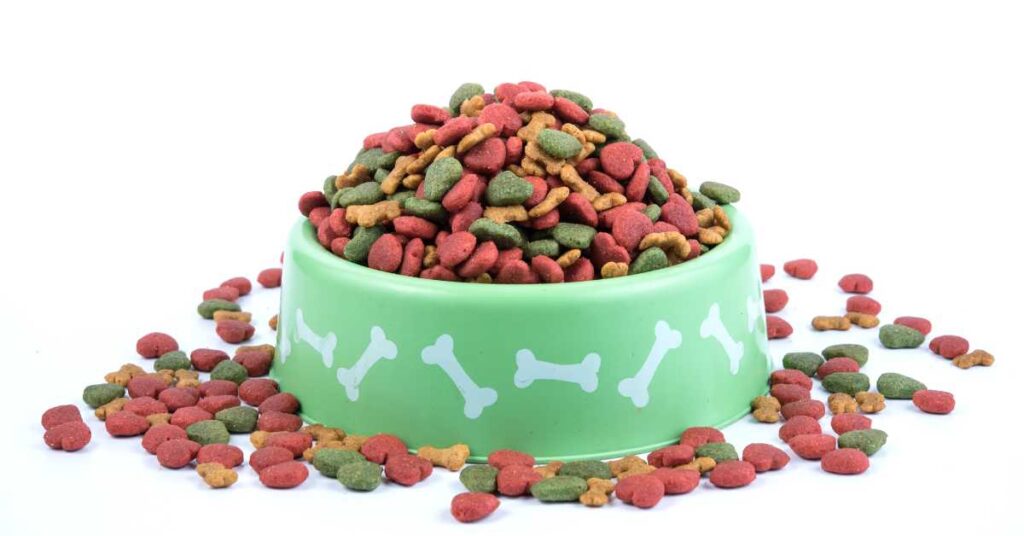As a seasoned schnauzer whisperer, I’ve come to realize that the quest for the perfect food for our furry companions can be as intricate as decoding ancient hieroglyphics. With so many options on the market claiming to be the ultimate choice for schnauzers, how does one navigate this culinary maze to find the holy grail of canine cuisine? Fear not, for I am here to shed light on the path to schnauzer satisfaction. Join me as we unravel the secrets of tail-wagging delight and optimal nutrition for these discerning doggos.
Key Takeaways
- Lean meats like chicken and turkey provide essential protein for Schnauzers.
- Omega-3 fatty acids from fish like salmon support skin and coat health.
- Consult a vet for personalized advice on specialized diets and supplements.
- Opt for high-quality ingredients and tailored nutrition for optimal health.
Nutritional Requirements of Schnauzers
Understanding the nutritional needs of Schnauzers is crucial for providing them with a balanced and healthy diet. When it comes to protein sources for Schnauzers, lean meats such as chicken, turkey, and beef are excellent choices. These meats are rich in high-quality protein, which is essential for muscle development and overall health. Additionally, fish like salmon and mackerel can provide omega-3 fatty acids that support skin health and a shiny coat.
Incorporating dietary supplements into a Schnauzer’s diet can also be beneficial. Omega-3 fatty acid supplements can aid in maintaining healthy skin and a lustrous coat. Glucosamine and chondroitin supplements may help support joint health, which is particularly important for Schnauzers as they are prone to certain joint issues. However, it is essential to consult with a veterinarian before adding any supplements to your Schnauzer’s diet to ensure they are safe and appropriate for your furry friend’s specific needs.

Considerations for Schnauzer’s Diet
For optimal health and well-being, it is essential to carefully consider the dietary needs of your Schnauzer. Weight management plays a crucial role in ensuring your Schnauzer maintains a healthy body condition. Portion control is key, as overfeeding can lead to obesity, which in turn can result in various health issues such as joint problems and diabetes. It’s important to follow feeding guidelines provided by your veterinarian or pet nutritionist to determine the appropriate amount of food for your Schnauzer based on factors like age, activity level, and size.
Schnauzers may have special dietary needs that require attention. Some Schnauzers are prone to allergies or sensitive stomachs, necessitating a specialized diet. In such cases, working with a veterinarian to identify food sensitivities and select suitable options is crucial. Additionally, certain supplements like omega-3 fatty acids or joint support formulas may benefit Schnauzers, especially as they age. Before introducing any supplements, consult with a professional to ensure they are appropriate for your Schnauzer’s specific requirements.
Importance of High-Quality Ingredients
High-quality ingredients play a vital role in supporting a Schnauzer’s overall health and well-being. When choosing food for your Schnauzer, consider the following:
- Ingredient Sourcing: Opt for foods that clearly state the sources of their ingredients, preferably using human-grade and ethically sourced components. This ensures the quality and safety of the food you are providing.
- Quality Matters: High-quality ingredients are more digestible for Schnauzers, reducing the risk of digestive issues and food sensitivities. Look for foods that are free from artificial additives, fillers, and by-products.
- Health Benefits: Quality ingredients provide essential nutrients like protein, vitamins, and minerals that support your Schnauzer’s immune system, skin, coat, and overall energy levels.
- Risks of Poor Quality: Low-quality ingredients can lead to nutritional deficiencies, obesity, and an increased likelihood of health problems in Schnauzers. Investing in premium foods can contribute to your Schnauzer’s long-term health and quality of life.
Wet Vs. Dry Food for Schnauzers
When selecting food for your Schnauzer, it’s important to consider the benefits of both wet and dry options. Wet food provides higher moisture content, which is beneficial for Schnauzers who may not drink enough water, aiding in hydration and kidney health. Additionally, the soft texture of wet food can be easier for older Schnauzers with dental issues to chew and digest. On the other hand, dry food has advantages such as being more convenient to store, serving, and keeping teeth cleaner by reducing plaque buildup through chewing. However, some drawbacks of dry food include a lower moisture content that might not be sufficient for all Schnauzers’ hydration needs and potential challenges for those with dental problems due to the hardness of the kibble. Understanding these differences can help you make an informed decision based on your Schnauzer’s specific needs and preferences.
Homemade Diet Options for Schnauzers
Considering a homemade diet for your Schnauzer provides a tailored approach to ensuring their nutritional needs are met. When opting for a homemade diet, it’s crucial to understand the benefits and risks associated with raw feeding and the importance of grain-free options for Schnauzers.
Homemade Diet Options for Schnauzers:
- Raw Feeding: Incorporating raw foods into your Schnauzer’s diet can provide essential nutrients and enzymes that may be lost during cooking. However, it’s important to handle raw meat carefully to avoid bacterial contamination.
- The Benefits: Raw feeding can lead to shinier coats, healthier skin, improved digestion, and increased energy levels in Schnauzers. It allows for better control over ingredients and can be beneficial for dogs with food sensitivities.
- The Risks: Raw diets can pose a risk of bacterial infections for both dogs and their owners. It’s crucial to consult with a veterinarian to ensure the diet is balanced and safe for your Schnauzer.
- Grain-Free Options: Schnauzers may benefit from grain-free diets as they are prone to certain allergies and sensitivities. Opting for grain-free recipes can help alleviate these issues and promote better overall health.
Best Commercial Dog Food Brands
Among the array of options available, some standout commercial dog food brands provide tailored nutrition for your Schnauzer’s specific dietary needs. When considering the best food for your Schnauzer, look for brands that offer grain-free options and limited ingredient formulas. Grain-free options can be beneficial for Schnauzers with sensitivities or allergies to grains, while limited ingredient formulas can help reduce the risk of triggering food intolerances. Brands like Taste of the Wild, Blue Buffalo, and Wellness Core are known for their high-quality ingredients and focus on tailored nutrition for different breeds, including Schnauzers. These brands often incorporate a balance of proteins, fats, and essential nutrients to support your Schnauzer’s overall health and well-being. By choosing a reputable commercial dog food brand that offers grain-free options and limited ingredient formulas, you can provide your Schnauzer with a balanced and nutritious diet that meets their specific dietary requirements.
Feeding Schedule and Portions
As we focus on ensuring the optimal nutrition for your Schnauzer, establishing a consistent feeding schedule and appropriate portion sizes is crucial for their health and well-being.
When it comes to feeding your Schnauzer, consider the following key points:
- Meal Frequency: Schnauzers generally do well with two meals a day, spaced out evenly to maintain energy levels and prevent overeating. Consistency in meal times helps regulate their digestion.
- Serving Size: The serving size should be based on your Schnauzer’s size, age, activity level, and overall health. Consult with your veterinarian to determine the appropriate portion to avoid underfeeding or overfeeding.
- Weight Management: Monitoring your Schnauzer’s weight is essential. Adjust portion sizes accordingly to prevent obesity, which can lead to various health issues.
- Portion Control: Use measuring cups to ensure accurate portion sizes. Avoid free-feeding to maintain control over how much your Schnauzer is eating, promoting a healthy weight and lifestyle.
Monitoring Your Schnauzer’s Health
Regularly monitoring your Schnauzer’s health is vital for detecting any potential issues early and ensuring their overall well-being. Weight management plays a crucial role in your Schnauzer’s health, as obesity can lead to various health problems. Maintaining a healthy weight through proper nutrition and portion control is essential. Additionally, establishing a regular exercise routine tailored to your Schnauzer’s needs can help keep them fit and active.
In addition to weight management and exercise, scheduling regular veterinary check-ups is imperative. These check-ups allow the vet to assess your Schnauzer’s overall health, address any concerns, and administer necessary vaccinations. Dental care is another essential aspect of monitoring your Schnauzer’s health. Regular teeth brushing and professional cleanings can prevent dental issues that may impact your Schnauzer’s well-being.
Frequently Asked Questions
Are There Any Specific Supplements That Schnauzers Need in Their Diet?
Incorporate specific supplements into a Schnauzer’s diet to address their unique needs. Options like omega-3 fatty acids or probiotics can provide benefits for skin health, digestion, and overall well-being. Nutritional deficiencies can be addressed through tailored supplementation.
Can Schnauzers Have Allergies to Certain Ingredients in Their Food?
Yes, schnauzers can have allergies to common allergens like wheat, corn, and soy found in dog food. Recommended alternatives include limited ingredient diets with novel proteins such as turkey, duck, or venison to avoid triggering allergic reactions.
Is It Safe to Feed My Schnauzer Human Food as Treats?
I’ve learned that while it’s tempting to share human food as treats with my schnauzer, I stick to specially made training treats or homemade snacks. This keeps my furry friend safe from potential health risks.
How Do I Know if My Schnauzer Is Getting Enough Exercise to Complement Their Diet?
Monitoring my schnauzer’s exercise is vital for weight management. Observing their energy levels and behavior helps me gauge if they’re getting enough activity. Regular walks, playtime, and mental stimulation contribute to a healthy lifestyle.
Are There Any Foods That Schnauzers Should Absolutely Avoid?
When considering Schnauzer food sensitivities and common health issues, it’s crucial to avoid foods like chocolate, grapes, and onions. These items can be toxic to Schnauzers and may lead to serious health complications.
Conclusion
In conclusion, providing your schnauzer with a balanced diet that meets their nutritional needs is essential for their overall health and well-being. Whether you choose a high-quality commercial dog food or opt for a homemade diet, it’s important to monitor their health and adjust their food intake as needed. By taking the time to research and select the best food for your schnauzer, you can help ensure they live a happy and healthy life.


